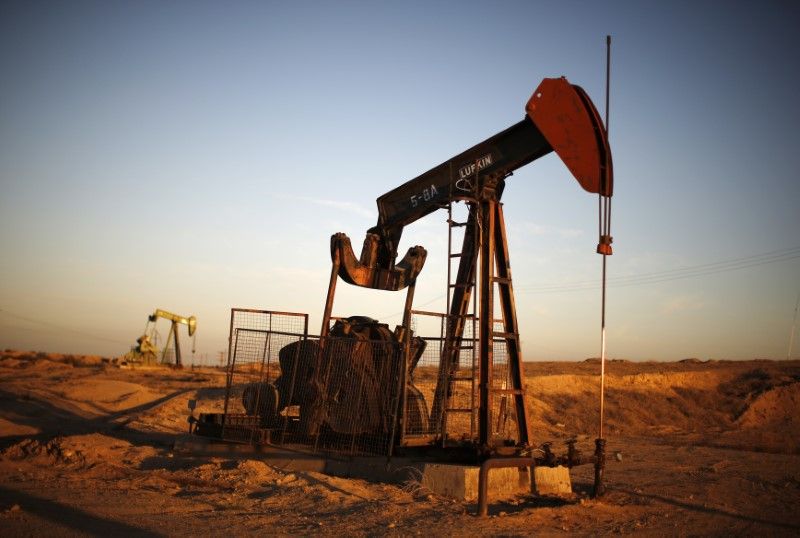
Futures in New York and London surged more than 2 percent to the highest in a month, Bloomberg said.
The strike early Friday morning targeted hangars, planes and fuel tanks at one Syrian military airfield, according to a U.S. official.
Read alsoEscalating U.S. role in Syria, Trump orders strikes on Assad airbase – ReutersSyria borders Iraq, OPEC's second-biggest crude producer. The news rippled across financial markets, with the yen and gold advancing as stocks declined.
"Syria is not a big oil producer but it does potentially increase the risk of escalation in the whole region," said Ric Spooner, chief market analyst at CMC Markets in Sydney. "We're seeing a risk response to the airstrike. Given rising supply, the size of inventories and the extent of the pick up in shale output, it does seem likely that price gains will be capped."
Oil had struggled to extend a rally beyond $51 a barrel as concern over surging U.S. supplies countered optimism around a possible extension to production cuts led by the Organization of Petroleum Exporting Countries. The strike against Syria comes two days after Bashar al-Assad's regime used poison gas to kill scores of civilians, drawing international condemnation while President Donald Trump called it "an affront to humanity."
West Texas Intermediate for May delivery on the New York Mercantile Exchange rose as much as $1.24 to $52.94 a barrel, the highest level since March 7, and traded at $52.53 by 1:26 p.m. in Hong Kong. Prices are up 4.1 percent this week, heading for a second weekly gain. Total volume traded was more than fivefold the 100-day average.
Temporary Surge
Brent for June settlement on the London-based ICE Futures Europe exchange surged as much as $1.19 to $56.08 a barrel, also the highest level since March 7. Prices are up 5.6 percent this week. The global benchmark crude traded at a premium of $2.74 to June WTI.
Read alsoReuters: Oil rises to near one-month high on gradual tightening of suppliesThe oil price spike may be temporary as long as the military action is contained and doesn't spread into Iraq, as Syria is no longer a significant producer, Nomura Holdings Inc. said in a note. Iraq pumped 4.43 million barrels a day last month, according to data compiled by Bloomberg.
Syrian output has slumped during the ongoing conflict. Production of petroleum and other liquids dropped to about 35,000 barrels a day in 2016, making it the 66th biggest producer, according to the Energy Information Administration. The nation pumped an average 400,000 barrels a day of oil between 2008 and 2010.

